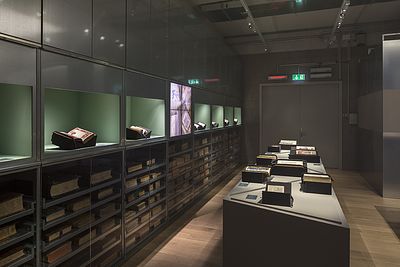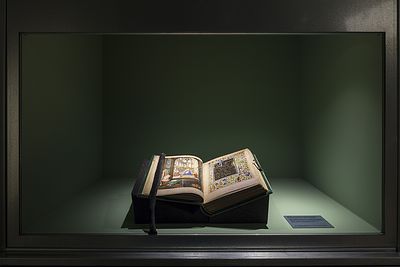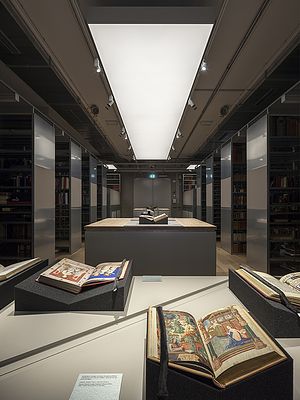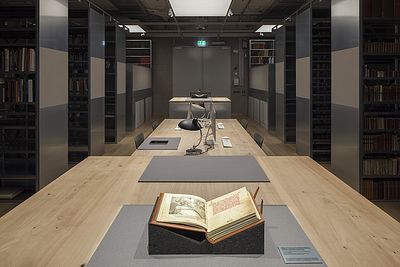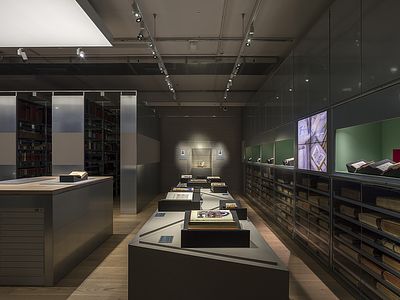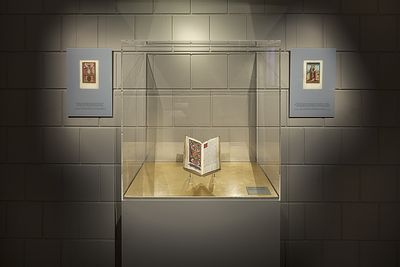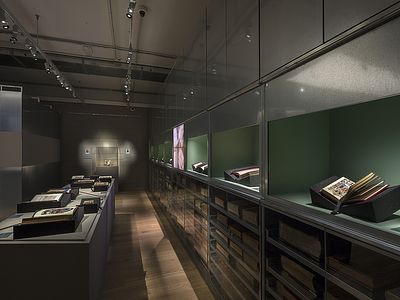STUDY ROOM | 18.07.2014 – 28.09.2014
FRÖMMIGKEIT ODER STATUSSYMBOL
Faksimilierte Gebet- und Stundenbücher der Libisma Collection
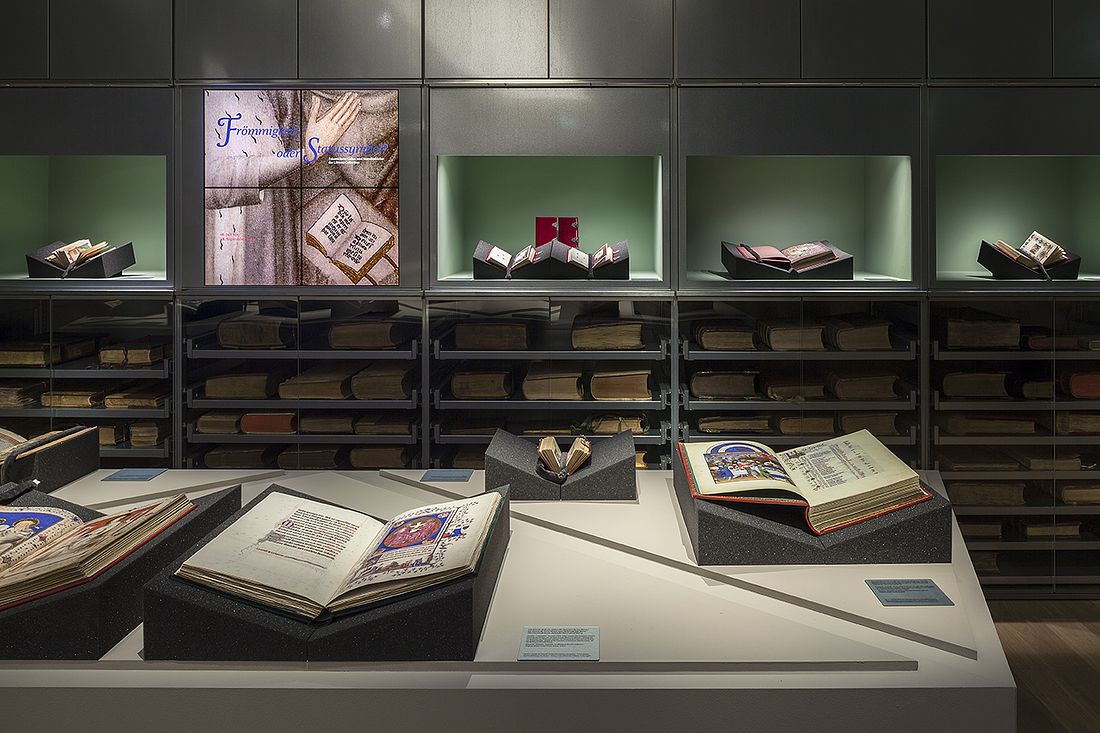
The Libisma Collection is a highquality and extensive collection of facsimiles (faithful reproductions of the originals), collected by Aldegonde and Hubert Brenninkmeijer – initially in close exchange with Liberna founder Bernard Brenninkmeijer. Except for some early printed books, the collection consists of first-rate facsimile manuscripts and gives a good overview of major highlights among unique manuscripts spread over museums and collections all over the world and of the history of European miniatures from the seventh to the fifteenth centuries. The collection has been housed at the Draiflessen Collection since November 2013, presenting a wonderful source of research complementing the Liberna Collection. In addition to important copies of the prayer books and books of hours of high-ranking persons – such as the Duke of Berry and the Sforza family – there is one original in particular in the Liberna Collection that illustrates the added value this collection has brought to the Draiflessen Collection. The prayer book written and illuminated in 1599 as a wedding present for Isabella Clara Eugenia, Stadtholder of the Southern Netherlands, by Abbess Jeanne de Penin and the nuns of the Convent of Mary, the Ter Kameren Abbey, in Brussels, is not just a testimony to its owner’s devotion to Mary, it also contains a great many unique, sometimes personalised accents, as is not unusual for this type of often small-sized prayer book and book of hours. These personal touches made them immensely popular as, in contrast to the liturgical texts, they were not bound by Church rules.
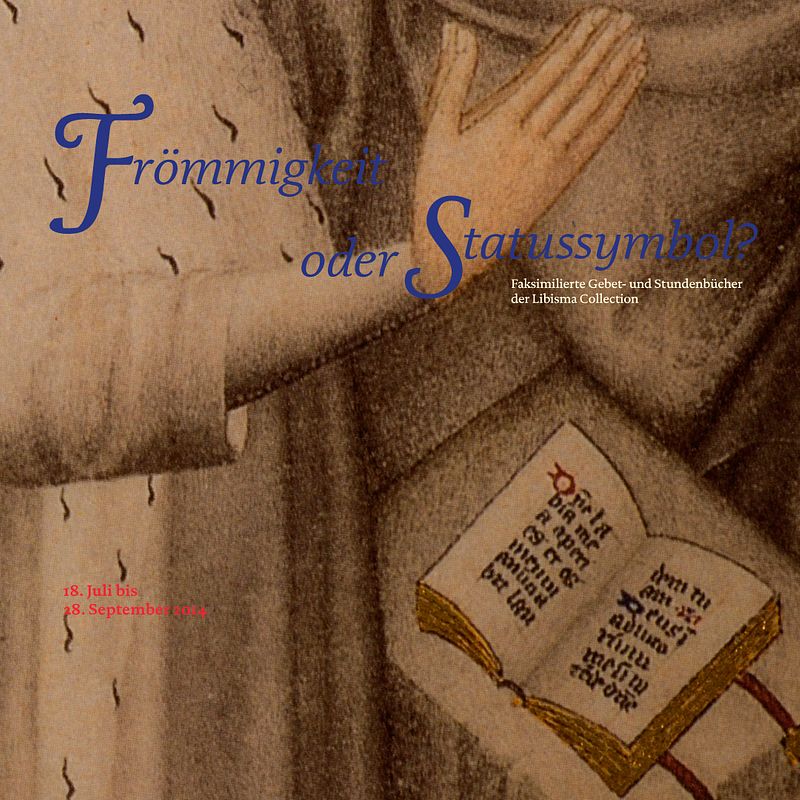
Frömmigkeit oder Statussymbol
| © Draiflessen Collection, Mettingen

